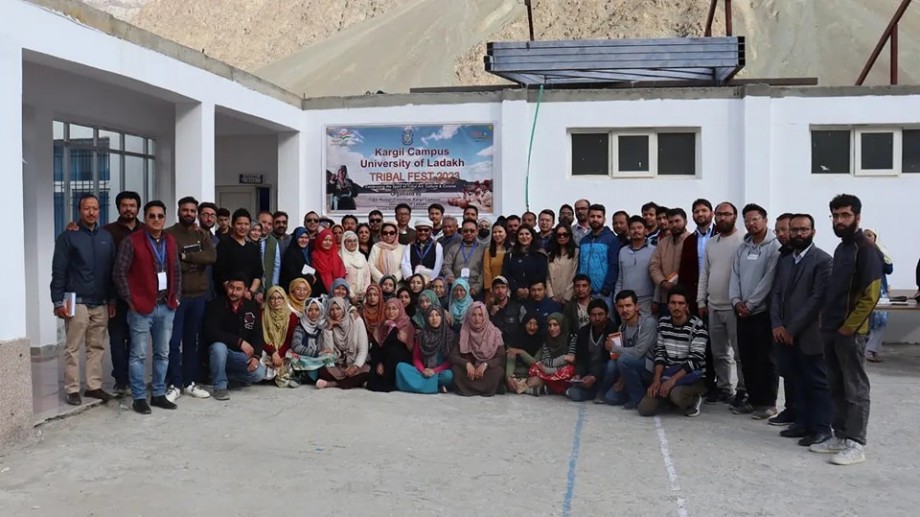One-day seminar on indigenous tribes of Ladakh held at Ladakh University, Kargil campus

One-day seminar themed, ‘Indigenous Tribes of Ladakh: Understanding Vulnerability, Inclusivity, and Conservation Efforts’ was organised by Tribal Research Institute (TRI), Kargil Campus, University of Ladakh on June 9.
The seminar was inaugurated by the chief guest, Prof. (Dr.) Ashok Kumar Sharma, Registrar, University of Ladakh.
Kaneez Fatima, Rector, Kargil campus, University of Ladakh underscored the policy significance of Tribal Research Institute to keep alive the cultural legacy and traditions of tribes of Ladakh. She also sought research assistance and guidance from pioneers in the field of tribes of Ladakh by acting as a torch bearer to accomplish the manifested goal of establishing the Tribal Research Institute.
Prof. (Dr.) Ashok Kumar Sharma, Registrar, UoL stressed the need for preservation, protection, and advertisement cum showcasing of the cultural heritage of Ladakh region across the world thereon polishing the untapped potential of youths and application of low-cost affordable technology.
In the technical session, Dr. Sonam Wangchok, President, International Association for Ladakh Studies stress on preservation of intangible cultural heritage through traditional fairs and festivals and asked for community participation in the restoration and conservation of the same.
Presentation on various themes was presented by Dr. Tsewang Gyalsten, Research scholar; Dr. Monisha Ahmad, Anthropologist, and cultural researcher; Dr. Jamphel Shayen, Asst. Prof. English, GMDC Zanskar; Mohammad Ali, Research scholar; Dr. Tsewang Gyaltsen, Asst. Prof. Political Science, GMDC Zanskar; Nawang Tsering Shakpso; Imteeaz Ali, Research scholar, and Dr. Nargis Khatoon, Research scholar.
Dr. Mehboob Ali, Asst. Prof. Kargil Campus, UoL expressed sincere gratitude to Prof. S.K. Mehta, Vice Chancellor, UoL, and Kaneez Fatima, Rector, Kargil campus UoL for providing unflinching technical and logistic support to make this event successful. He also appreciated the participation of the research scholars, participants, and non-teaching staff members.





